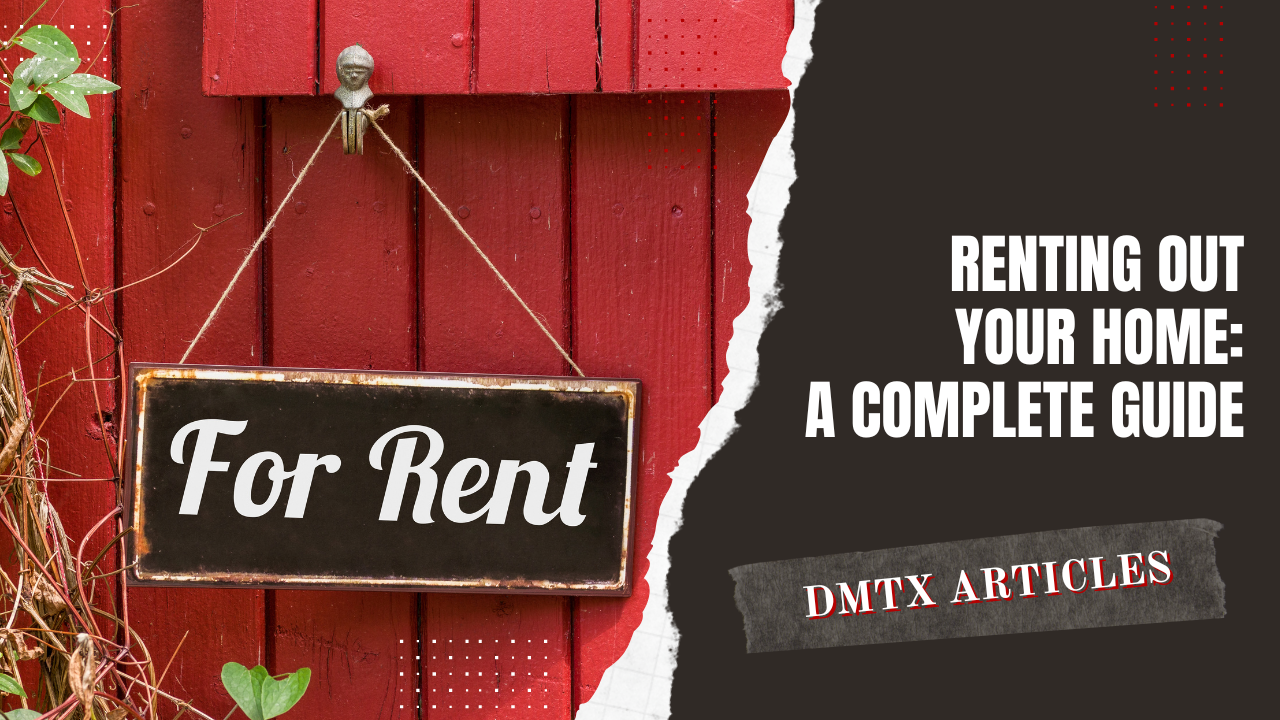Renting out your home can be a great way to earn extra income, but it also comes with responsibilities. Whether you’re looking to rent out a second property or your primary residence, this guide will help you understand the steps involved, the benefits, and the challenges. Let’s dive into everything you need to know about renting out your home.
Why Rent Out Your Home?
1. Extra Income
One of the biggest benefits of renting out your home is the additional income. This can help cover your mortgage, pay off debts, or save for future expenses. It’s a steady stream of money that can significantly boost your financial situation.
2. Property Appreciation
While you rent out your home, it continues to appreciate in value. Over time, the property can increase in worth, adding to your investment portfolio. This can be especially beneficial in a growing real estate market.
3. Tax Benefits
Renting out your home can come with tax advantages. You may be able to deduct expenses related to the property, such as maintenance, repairs, property management fees, and mortgage interest. Be sure to consult with a tax professional to understand all the deductions available to you.
Steps to Renting Out Your Home
1. Prepare Your Home
Before you can rent out your home, you need to make sure it’s in good condition. This includes cleaning, making any necessary repairs, and ensuring that all appliances are in working order. A well-maintained home is more attractive to potential renters and can help you charge a higher rent.
2. Set a Competitive Rent Price
Research similar rental properties in your area to determine a competitive rent price. Consider factors such as the size of your home, its location, and any special features or amenities it offers. Setting the right price is key to attracting tenants quickly and ensuring a steady rental income.
3. Market Your Property
To find the right tenants, you need to market your property effectively. Take high-quality photos, write a detailed description, and list your home on popular rental websites. You can also use social media and local community boards to spread the word. The more visibility your property gets, the better your chances of finding good tenants.
4. Screen Potential Tenants
Tenant screening is crucial to finding reliable and responsible renters. Conduct background checks, credit checks, and reference checks to ensure that potential tenants have a good rental history and can afford the rent. This will help you avoid issues such as late payments or property damage.
5. Draft a Lease Agreement
A lease agreement is a legal document that outlines the terms and conditions of the rental. It should include details such as the rent amount, payment due dates, security deposit, maintenance responsibilities, and rules for the property. Having a clear and comprehensive lease agreement protects both you and your tenants.
6. Collect a Security Deposit
A security deposit is an upfront payment from the tenant that covers any potential damage to the property or unpaid rent. This deposit gives you peace of mind and financial protection. Be sure to follow local laws regarding the amount and handling of security deposits.
7. Maintain the Property
Once your tenants move in, it’s important to maintain the property. Regular inspections, prompt repairs, and good communication with your tenants help ensure that the home remains in good condition. A well-maintained property keeps tenants happy and protects your investment.
8. Hire a Property Manager
If you don’t have the time or experience to manage the rental yourself, consider hiring a property manager. They can handle tasks such as marketing the property, screening tenants, collecting rent, and coordinating repairs. While this comes with a fee, it can save you time and hassle in the long run.
Challenges of Renting Out Your Home
1. Dealing with Tenants
Managing tenants can sometimes be challenging. You may encounter late payments, disputes, or damage to the property. It’s important to set clear expectations from the beginning and address any issues promptly and professionally.
2. Property Maintenance
Maintaining a rental property requires time and effort. You need to ensure that the home is safe, clean, and in good repair. Regular maintenance can help prevent bigger issues down the line but can also be time-consuming and costly.
3. Legal Responsibilities
As a landlord, you have legal responsibilities to your tenants. This includes providing a safe and habitable living environment, following fair housing laws, and adhering to the terms of the lease agreement. It’s important to understand your legal obligations and stay compliant with local regulations.
4. Vacancy Periods
There may be times when your property is vacant between tenants. During these periods, you won’t receive rental income, but you still need to cover expenses such as the mortgage, utilities, and maintenance. Planning for these vacancy periods is essential for managing your finances.
Conclusion
Renting out your home can be a rewarding experience that provides extra income and potential tax benefits. However, it also comes with responsibilities and challenges. By preparing your home, setting a competitive rent price, marketing effectively, screening tenants, and maintaining the property, you can successfully rent out your home and enjoy the financial benefits. Whether you manage the rental yourself or hire a property manager, understanding the process and being prepared will help you make the most of your investment.


